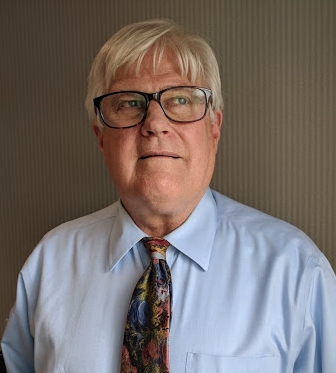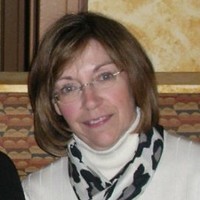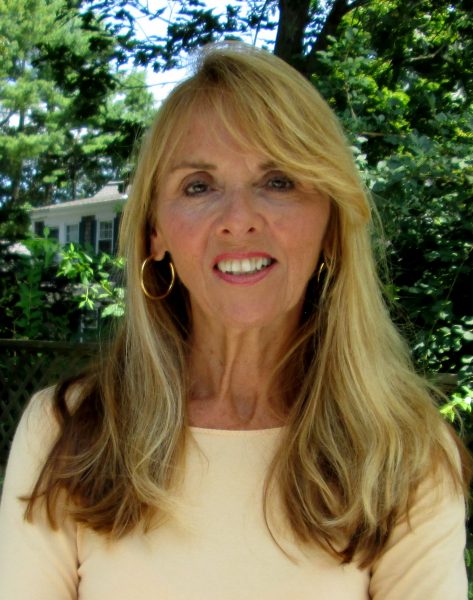Current Fellows and guests participated in an engaging discussion on current issues in the Probate and Family Court. Among the hot topics and challenges discussed were: the great need for translators and attorneys for pro se litigants in Suffolk Probate and Family Court, where 90% of all litigants are unrepresented, retention of lawyers representing clients in the Court, and alternative methods of resolution for cases.
 Jerry Tutor and Gouri Banerjee co-founder of Saheli, Inc. began the presentations, introducing the group to the important work Saheli does to support women from South East Asia in need of protection from domestic violence. 2018-2019 marks the first year of our relationship with Saheli, which we hope will continue for many years to come. Thank you!
Jerry Tutor and Gouri Banerjee co-founder of Saheli, Inc. began the presentations, introducing the group to the important work Saheli does to support women from South East Asia in need of protection from domestic violence. 2018-2019 marks the first year of our relationship with Saheli, which we hope will continue for many years to come. Thank you!
Jerry serves as the family law advisor at Saheli’s Burlington office. He considers himself “of counsel” for Saheli. Jerry explained that he meets with women and families and helps to point them in the right direction to identify issues about which they should be thinking. Saheli’s staff has not had lawyers to consult with in the past, so Jerry has done regular trainings. He noted that one such training was explaining the different standards between 209A and 208 restraining orders.
Gouri acknowledged that Jerry fits right in at Saheli. She stated that she founded Saheli because a lot of women immigrants from this area go to court with no representation of all. For women, sometimes the fact that they are immigrants makes them much more vulnerable to abuse. They have no support system, limited economic resources, and limited understanding of the law and the American justice system. Jerry can help fill those gaps. Gouri stated that the group that Saheli serves is scattered across Massachusetts and they speak 21 different languages. This makes it tough to advocate for everyone. Women come to them for friendship and support. But, in reality, the work they are doing today is extremely complex. They are working with victims of abuse, and that abuse is exacerbated by race, immigration, and deportation, among many other things. Saheli collaborates with all of the other domestic violence agencies in Massachusetts. Gouri stated that they also train police, lawyers, judges, and others on how their work affects Southeast Asian women. Saheli tries to make sure that women of color have representation at the table so that people can hear their perspectives.
Gouri noted that she has seen positive changes in the Probate and Family Court. For example, ten years ago, she asked to speak on behalf of a woman in court. She was allowed to and saw this as a positive sign. Now, Saheli asks to speak on behalf of their clients everywhere and around 50% of courts allow them to speak on behalf of someone who does not speak English. In response to follow up questions, Gouri explained that there is often a lack of court interpreters and that when no one can translate there are significant delays. Saheli also faces the challenge of being overloaded with immigration issues. While they have a lawyer on their advisory committee who does pro bono assistance with immigration cases, they have to send people away because she is so busy.

Karen Quandt and Vickie Rothbaum from the SERV (Settlement and Early Resolution Volunteers) project made impactful presentations to the group on the work they do to represent pro se litigants in the Suffolk Probate and Family Court. SERV has had at least one Fellow every year since Vickie joined the Fellows program 2015 with Senior Partners for Justice: Ann Baum, Arlene Bernstein, Steve Greenzang, and Paul Newman. We were lucky to have had most of SERV’s continuing Fellows join us to share their experiences.
Vickie presented on her involvement with SERV since 2012, when volunteers began to meet the needs of the pro se population. She illustrated the need for SERV used the example a 42 year old with English as a second language to demonstrate the work that SERV does. In this scenario, that 42 year old gets papers summoning him to court for divorce proceedings. He barely knows what it means, but he has to take a day off as an hourly employee to go to court. He waits in a long line, and the clerk asks for documents that he did not know that he needed. The clerk says he needs to come back with all of the required papers, and they will reschedule this hearing. Vickie explained this is how people enter the “conveyor belt.” The man is sent to the clerk’s office which is understaffed. After a while, he stops going back to court because he is not getting justice. Vickie explained that they decided to start SERV to help this population and gave the following statistics about the program: They have a roster of about 100 lawyers that come every Monday and Wednesday; statistics show that in Suffolk county 90% of people are pro se; and, they have seen 2,290 cases and have seen about a 70% settlement rate. Vickie stated that this is a model that really works.
Karen, a current Fellow working as a conciliator for SERV, presented about her experience with the project. She stated that on some days they have 15-18 cases and on some they have three. She explained that cases break down to modification or enforcement of child support. The parties involved usually do not have all of the necessary information, so they work with them to pull it out. They also have people who want a divorce but do not know what is needed to do this. Karen and others at SERV help to go through and check all of the correct boxes, so that they can get divorced that very same day. Karen gave the example of working with the same couple over a nine month period, which resulted in a complex agreement. She has found that SERV has allowed kids to end up with more caring parents and better family situations. They are doing more than just helping the court. Vickie stated that they are trying to work with others to think through the process of early resolution to get to people before the filing stage.
Many engaged in a conversation about access to translators and the impediments imposed by the finite number of translators. Karen explained that they have to use court assigned translators but sometimes they can use family members that the person trusts. Sometimes they wait 2-3 hours for translators that never show up.
In the third presentation of the afternoon, Janet Donovan, our program’s continuing Fellow, spoke as a longtime member of the Women’s Bar Foundation, and presented on the WBF’s Family Law Project (FLP). She explained that it is unique that people are assigned a mentor for the duration of the case when working with FLP. She indicated that this has been a great resource for attorneys doing pro bono work for FLP. At the same time, this has been labor intensive for the mentors. Many times, tricky questions come up. For many years, they have been talking about getting a super mentor, who can mentor the mentors. Janet explained that Paula stood out in this way, and they were successful in recruiting her this year! Janet stated that Paula is now working on training and retention of volunteer attorneys. She explained that many attorneys never want to step in family court again after their first try.
 Paula Mangum, a current Fellow, presented on her role within FLP. She stated that when she started out as pro bono attorney with the FLP, she just always took a case, finished it, and then took the next one. She saw that they had a great infrastructure and training program, but she learned that many attorneys left after their first case. Paula explained that she undertook this project to enhance the experience for pro bono attorneys so that they would stay on board for more than one case. She found that this could be done in two ways. First, retention could be improved through additional mentoring support. People taking on these cases are frequently new attorneys who want training, or older attorneys who have never had experiences with family law. Paula mentioned that she will physically accompany attorneys to trial or second-seat a trial for them. Second, she indicated that she helps people to understand dealing with trauma before representation. She will help people learn how to work with people who have dealt with domestic violence. Paula indicated that they are planning to launch a brown bag session to offer specialized trainings that will take place every six weeks. The first training will be about preparing financial statements, which can be very complicated. She explained that this will help attorneys help clients and help attorneys look for what they need to get from the opposing party.
Paula Mangum, a current Fellow, presented on her role within FLP. She stated that when she started out as pro bono attorney with the FLP, she just always took a case, finished it, and then took the next one. She saw that they had a great infrastructure and training program, but she learned that many attorneys left after their first case. Paula explained that she undertook this project to enhance the experience for pro bono attorneys so that they would stay on board for more than one case. She found that this could be done in two ways. First, retention could be improved through additional mentoring support. People taking on these cases are frequently new attorneys who want training, or older attorneys who have never had experiences with family law. Paula mentioned that she will physically accompany attorneys to trial or second-seat a trial for them. Second, she indicated that she helps people to understand dealing with trauma before representation. She will help people learn how to work with people who have dealt with domestic violence. Paula indicated that they are planning to launch a brown bag session to offer specialized trainings that will take place every six weeks. The first training will be about preparing financial statements, which can be very complicated. She explained that this will help attorneys help clients and help attorneys look for what they need to get from the opposing party.
In response to Karen Quandt’s mention of her experience in Chicago, Michael Felsen raised the point that Chicago is doing something that Massachusetts does not do. Everyone is expected to do one pro bono case in their specialty. Sue Finegan stated that using limited assistance representation would possibly get more attorneys involved. That way, attorneys are in for a very important part of the case and practitioners who cannot commit 3-5 years to on a very difficult case can get involved with FLP. Gouri asked if there are large firms committed to doing family law for pro bono cases. Paula mentioned that trainings are always sponsored by big firms and that this is a big commitment. Sue mentioned that interest in working on pro bono immigration cases is off the charts. They have to react to what is the reality of what people want and what they can do. She stated that if you get one associate interested in family law, then he or she will talk to others and across firms. It is hard to counteract this trend towards immigration based on what has happened in the last few years.


